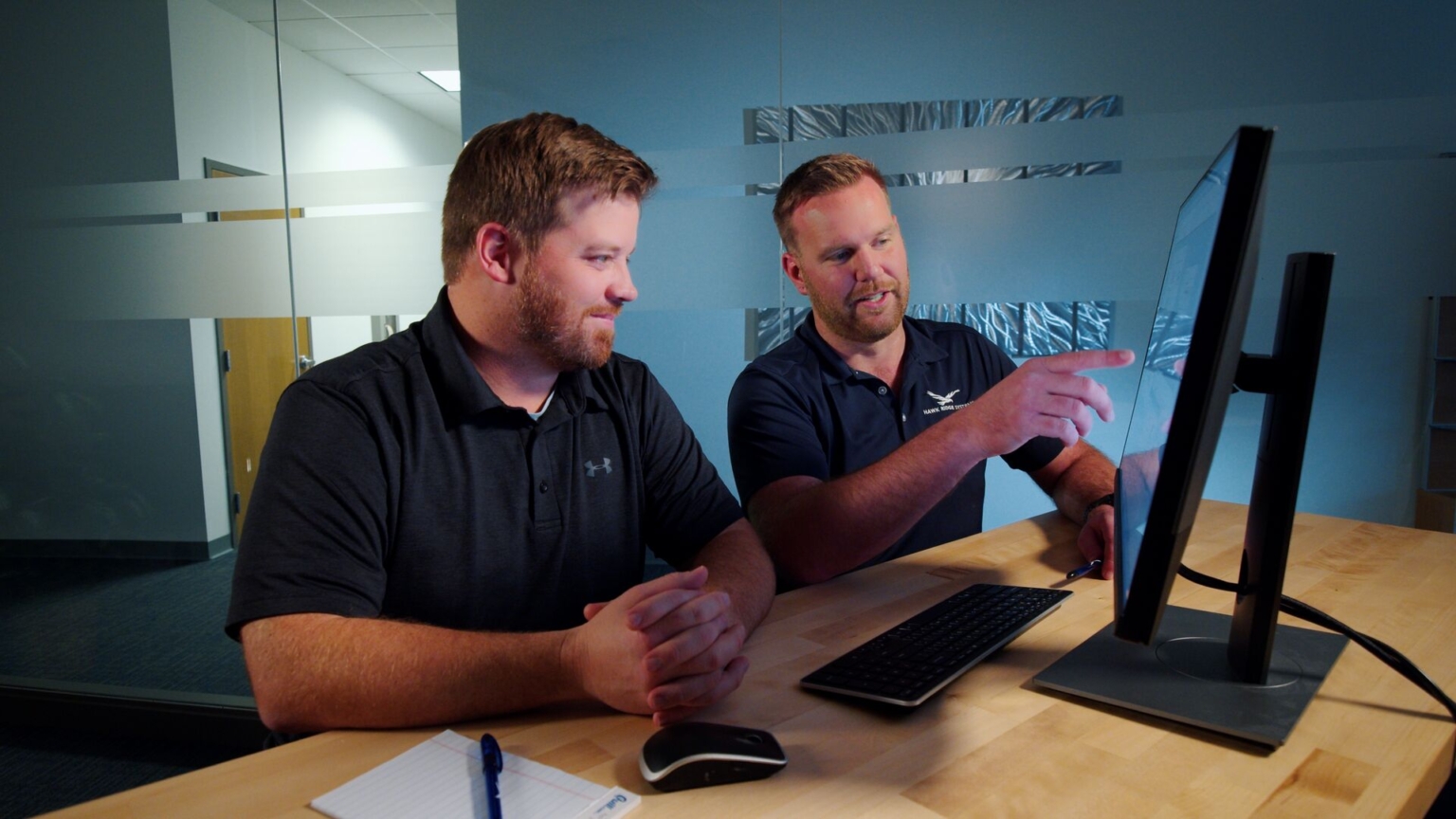If you’re wanting to learn SOLIDWORKS and you’re wondering which method is right for you, let me provide some detail into your options and the pros and cons associated with each.
There are three main ways to obtain SOLIDWORKS knowledge:
- You can take classes through a school (technical or community college, university)
- You can take the self-taught approach (YouTube, forums, practice)
- Or you can take certified training courses (through a VAR like Hawk Ridge Systems)

I will review the positive and negatives of each, as well as a broad overview of the type of person that most closely fits the method.
Higher Education Classes
The benefits of taking classes through a school is that it will give you an ample amount of time to invest in the SOLIDWORKS learning process. You’ll likely be taught something, then given assignments and tests to let it all sink in over time. You’ll also be given grades and notes that track your progress. That time investment can potentially be counted as a negative, however, if you’re in a rush. It’s also likely the most expensive option.
The benefit of college courses is that if you’re fresh out of high school, you need to learn a lot more than just CAD. You will need to gain insight into best work practices, drafting standards, materials, machining and production processes. Schools usually won’t let you take only CAD classes, they’ll make sure you’re getting a broad spectrum of knowledge in the field.
There are quick two-year programs through community or technical colleges that are relatively inexpensive, and geared toward making you a competent and useful member of society in your field as quickly as possible. With skill, intelligence and a good work ethic, a person can certainly move up from this position.
The Self-Taught Approach
The benefit of being self-taught is that it’s cheap. This method also has the potential of being either the fastest method of learning or the slowest method. It’s a high-risk, high-reward strategy. Everything is on you. Your success or failure will be entirely your responsibility. The potentially dangerous part of this, even if you become a SOLIDWORKS deity, is that you might not get much or any best work practices or manufacturing processes. It’s more likely that a self-taught person wouldn’t have the wide breadth of perspective and options supplied by either a teacher, professor or certified trainer.
You’ll need access to SOLIDWORKS if you’re going to want to get any practice, and that might not be easy or cheap. There are a lot of low-quality teaching videos and articles out there but there are some diamonds out there as well, you’ll have to search through the rubble to find that those gems.
This method is best for those who are extremely driven from their own internal spirit and have access to SOLIDWORKS and other methods of learning about the industry, maybe family or friends.
Certified Training Courses
This is a pitch to some degree, as I work for Hawk Ridge Systems primarily as a certified trainer in many fields – but I’m trying to be as honest and sincere as possible.
Training is a wonderful middle ground option between self-taught and school. If you’re already working in the industry, you don’t have to miss a lot of work to learn applicable SOLIDWORKS knowledge. If you’ve just left a job or have been graduated for a while and are looking for a quick, strong, legitimate refresher, this is for you.

The benefits of this method of learning are:
- It’s not as expensive as school
- You can complete training a lot faster than schooling
- You have access to experienced, certified SOLIDWORKS trainers that know the software inside and out
- Organized classes allow you take only the courses you want/need
- You can take training online or in person
All of our trainers are certified and capable of helping you prepare for your SOLIDWORKS certifications, which are extremely helpful when it comes to applying for jobs that require SOLIDWORKS knowledge.
A potential downside of this method is that a lot of information is presented in a short amount of time. We don’t grade you or measure your progress, so you have to be intentional about your training. Training also costs more than the self-taught method and you don’t receive college credits. When it comes to flexibility, it is of course less flexible than self-taught but more flexible than school.
Training with Hawk Ridge Systems
If you’re interested in Hawk Ridge Systems training, check out our course catalog to find the right class for you! Contact us if you have any questions, and I hope to see you in one of my training classes.




